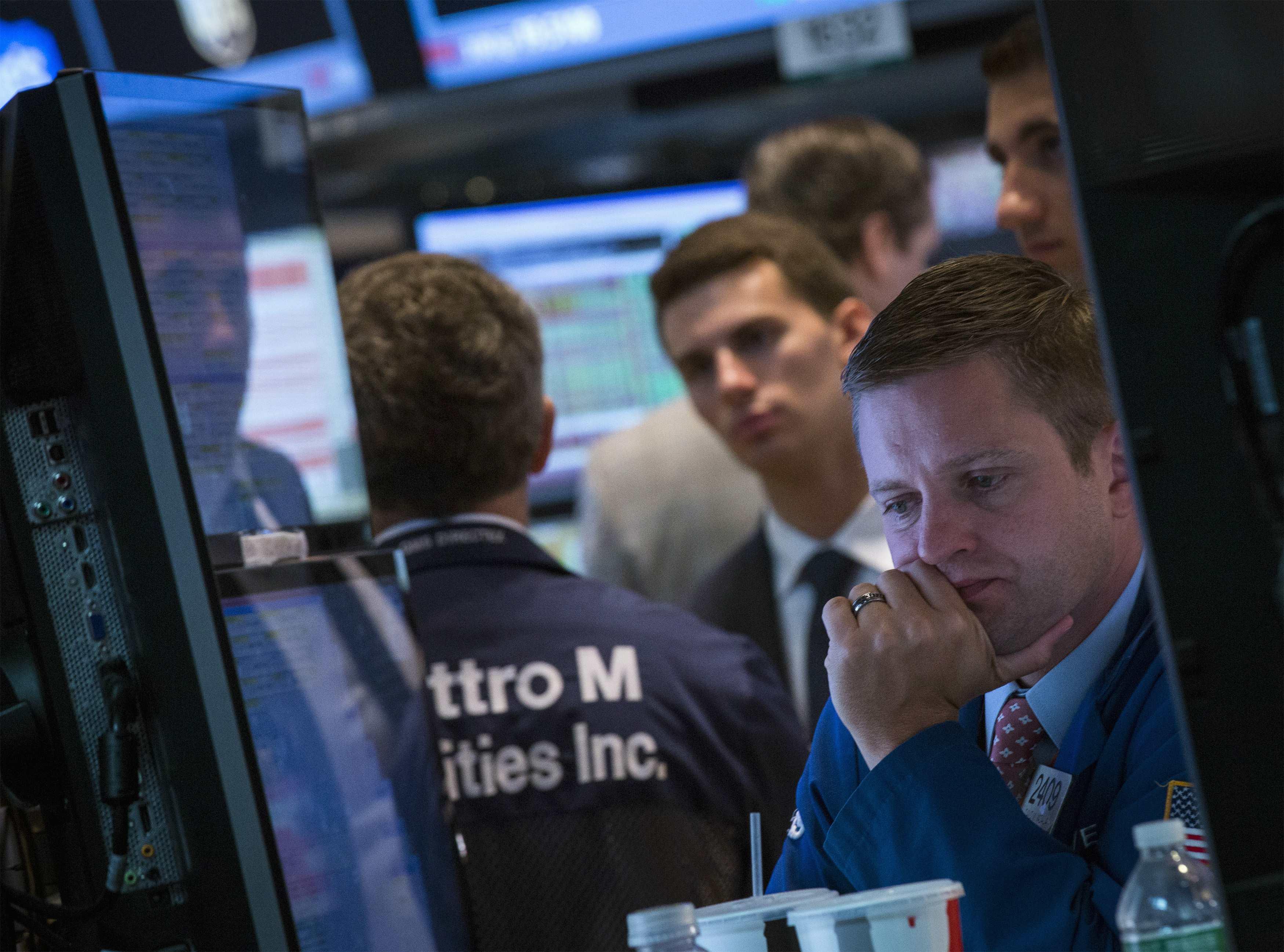Stocks Slump Worldwide, Bonds Rally on Growth Concerns
Bareksa • 08 Oct 2014

A trader watches his screen on the floor of the New York Stock Exchange. (REUTERS/Brendan McDermid)
The 10-year U.S. Treasury note rallied, dropping its yield to 2.34 percent, the lowest since late August
Bareksa.com - Global equity markets fell sharply on Tuesday and oil slipped to near 27-month lows as investors shifted funds into safe-haven government debt after more poor economic data from Europe heightened concerns about worldwide demand.
Wall Street's primary benchmark, the S&P 500, fell 1.5 percent to close at its lowest level in nearly two months. The small-cap Russell 2000 ended near a one-year low as investors reined in riskier bets ahead of this week's start of third-quarter earnings reports.
The primary catalyst for the equity market weakness was more bad news out of Germany, the euro zone's largest economy. After news on Monday of the biggest monthly drop in German industrial orders since the global financial crisis in 2009, data showed the country's industrial output plunged 4 percent in August in the biggest fall in more than five years.
U.S. markets fell throughout the session, ending near the day's lows. The 10-year U.S. Treasury note rallied, dropping its yield to 2.34 percent, the lowest since late August
"We're the best of the worst, and that's really helping the U.S.," said Aaron Kohli, an interest rate strategist at BNP Paribas in New York, referring to demand for safe-haven U.S. government debt.
The 30-year Treasury bond added more than a full point in price to hit its lowest yield since May 2013 and the yield on Germany's benchmark 10-year bond fell to 0.903 percent.
"The (German) number was very weak, which makes for a tough backdrop. I don't think this is a trend of something that will get horrible, but it is weak and current valuations demand that data be better than weak," said Hayes Miller, who oversees about $57 billion as Boston-based head of asset allocation in North America at Baring Asset Management.
MSCI's all-country world index of equity performance in 45 countries fell 0.97 percent, while the pan-European FTSEurofirst 300 index ended down 1.5 percent.
The Dow Jones industrial average fell 272.52 points, or 1.6 percent, to 16,719.39, the S&P 500 lost 29.72 points, or 1.51 percent, to 1,935.10 and the Nasdaq Composite dropped 69.60 points, or 1.56 percent, to 4,385.20.
Europe's troubles are occurring in tandem with weakened growth in other parts of the world. Apart from the United States, indicators of global demand have slipped sharply over the past few months as unrest in Ukraine, the Middle East and parts of Asia have taken a toll.
The IMF cut its global economic growth forecast to 3.3 percent this year and 3.8 percent next year from forecasts in July of 3.4 percent and 4 percent, respectively.
The dollar index slipped for a second consecutive session, but was still trading near four-year highs. Investors have generally been shifting funds in the direction of the dollar in the expectation that U.S. growth will outshine Europe and Japan.
The index, which tracks the greenback against six major currencies, was last down 0.33 percent at 85.643.
Against the yen, the dollar was down 0.74 percent at 107.97 yen. The euro rose 0.1 percent against the dollar to $1.2665.
Oil was hit by the IMF's reduced forecasts for economic growth. Brent crude oil fell 0.93 percent to $91.93 a barrel, not far from Monday's low of $91.25, which was the lowest since June 2012. U.S. November crude was down 1.67 percent at $88.83. (Source : Reuters)